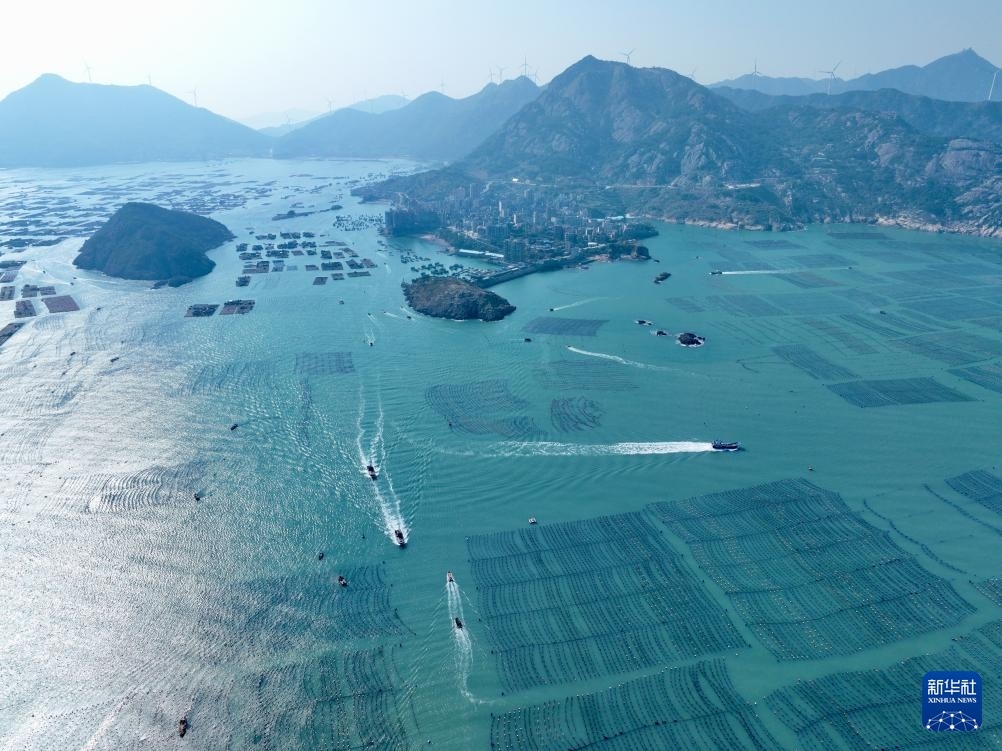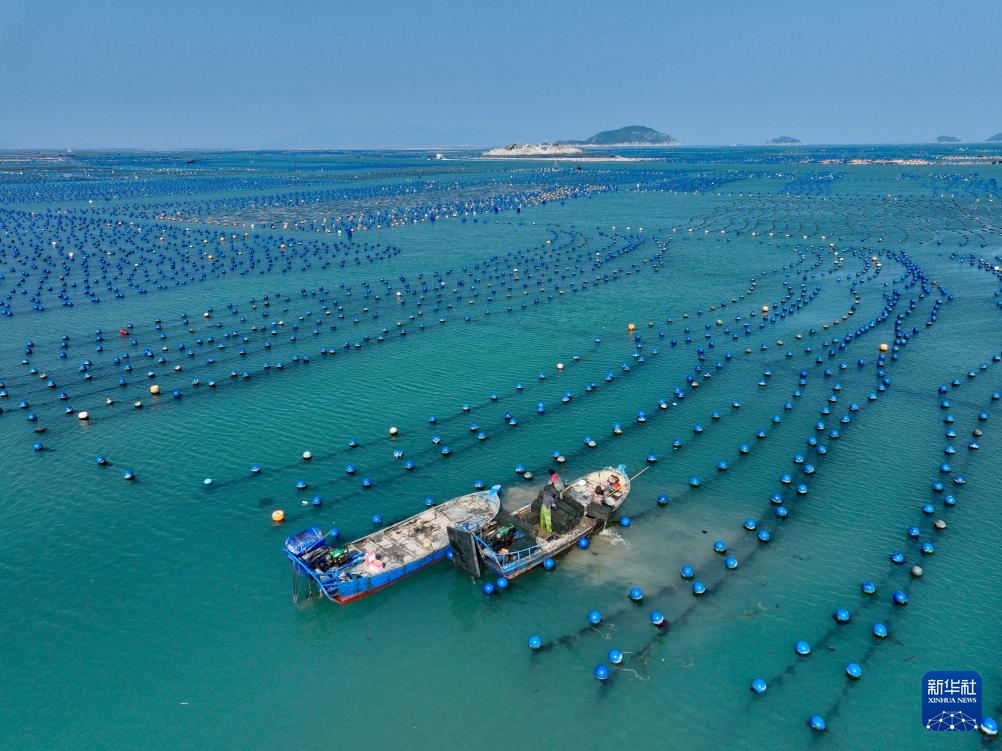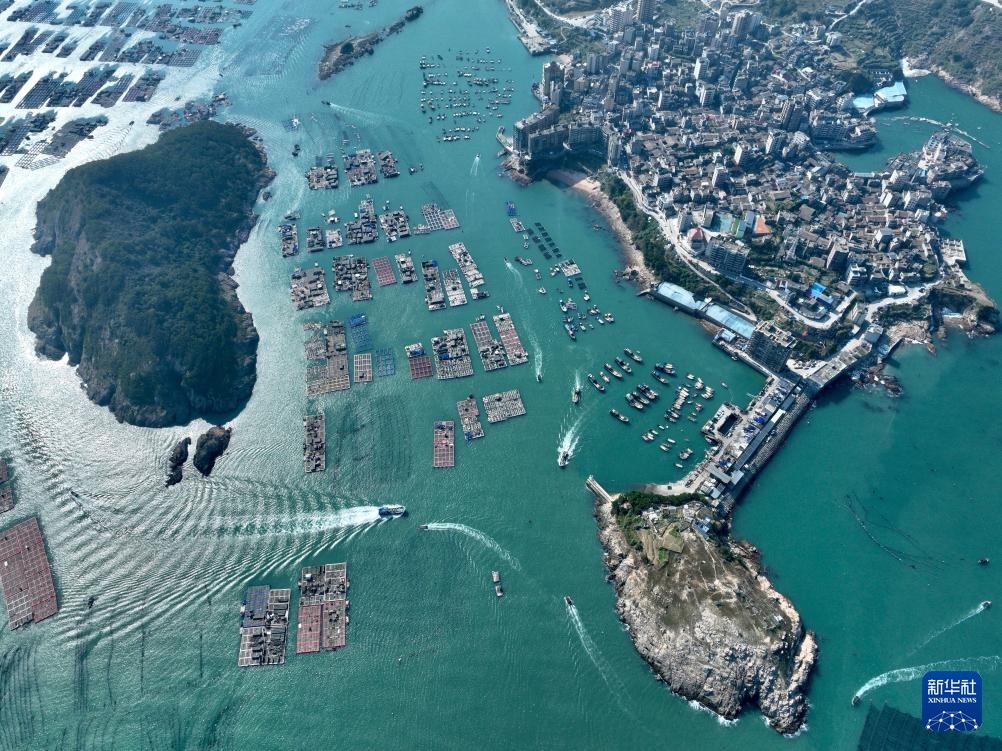




- BRNN
- BRI News
- BRNN News
- Database
Official Documents Polices and Regulations
Inter-government Documents International Cooperation BRI Countries
Business Guide Economic Data BRI Data
Trade
Investment Projects Latest projects
Cases - Content Pool
During the Spring Festival, or the Chinese New Year, Lianjiang county in southeast China's Fujian Province supplied about 600 tonnes of abalones to the market daily.
Fish farming has a long history in Lianjiang, where the sea area is 2.7 times the land area. Lianjiang's total aquatic product output has ranked second among county-level regions in the country for over 40 years in a row and its fishing industry output value has topped county-level regions in the country for three consecutive years.
Lianjiang has a sea area of 3,112 square kilometers and a shoreline spanning 238 kilometers. Last year, the county's total production of aquatic products surpassed 1.33 million tonnes.

Photo taken on Dec. 31, 2024 shows an abalone breeding area in Qida village, Lianjiang county, southeast China's Fujian Province. (Xinhua/Jiang Kehong)
Lianjiang accounts for about 25 percent of national abalone production. It is home to 11 sets of deep-sea and far-sea aquaculture platforms and 30 aquatic product processing enterprises above designated size. These enterprises collectively generated an industrial output of over 4.5 billion yuan (approximately $616 million) from January to November 2024.
In October 2024, Guanwu Marine Products Development Co., Ltd. was designated as a national high-quality kelp farming base. The company produces about 300,000 kelp seedlings annually, representing around 70 percent of the province's total production. According to Lin Zhelong, the company's chairman, the kelp seedlings are distributed to nine provinces in China and four foreign countries.
The "Dinghai Bay No. 1" deep-sea aquaculture platform in Lianjiang spans approximately 60 meters in length and about 32 meters in width, with a water depth of around 17 meters. According to Lu Tongfeng, chairman of Fujian Xinmao Fishery Development Co., owner of the platform, it is larger than four basketball courts and has the capacity to accommodate over 200,000 large yellow croakers.

Photo taken on Dec. 31, 2024 shows an abalone breeding area in Qida village, Lianjiang county, southeast China's Fujian Province. (Xinhua/Jiang Kehong)
Fuzhou Rixing Aquatic Food Co., Ltd. in Lianjiang produces over 100 abalone products, ranging from canned abalones to abalone seasonings. This strategy has enabled the company to raise the value of one tonne of abalones from approximately 100,000 yuan to 300,000 yuan, while boosting utilization rate from under 40 percent to over 80 percent.
Culu Island, the largest island in Lianjiang, is the core area of the Fuzhou (Lianjiang) national deep-sea fishing base, which is currently under construction. Three berths, each with a capacity of 10,000 tonnes and one berth with a capacity of 5,000 tonnes, have been completed.
"The core area of the base will serve as a hub for testing, nurturing, and fostering marine biotechnology innovation projects, offering assistance for the advancement of deep processing industries," explained Chi Liangjie from the construction command center of the base's core area.

Photo taken on Dec. 31, 2024 shows an abalone breeding area in Qida village, Lianjiang county, southeast China's Fujian Province. (Xinhua/Jiang Kehong)
"Several aquatic processing enterprises in Lianjiang are leading the way in their respective fields in the country. They have set up 27 academician (expert) workstations to help companies improve their deep processing capabilities through technological empowerment. This shift is aimed at transitioning towards high-end sectors like functional foods and biopharmaceuticals," said Yu Haiqing, director of the industry and information technology bureau of Lianjiang.

Tel:86-10-65363107, 86-10-65368220, 86-10-65363106